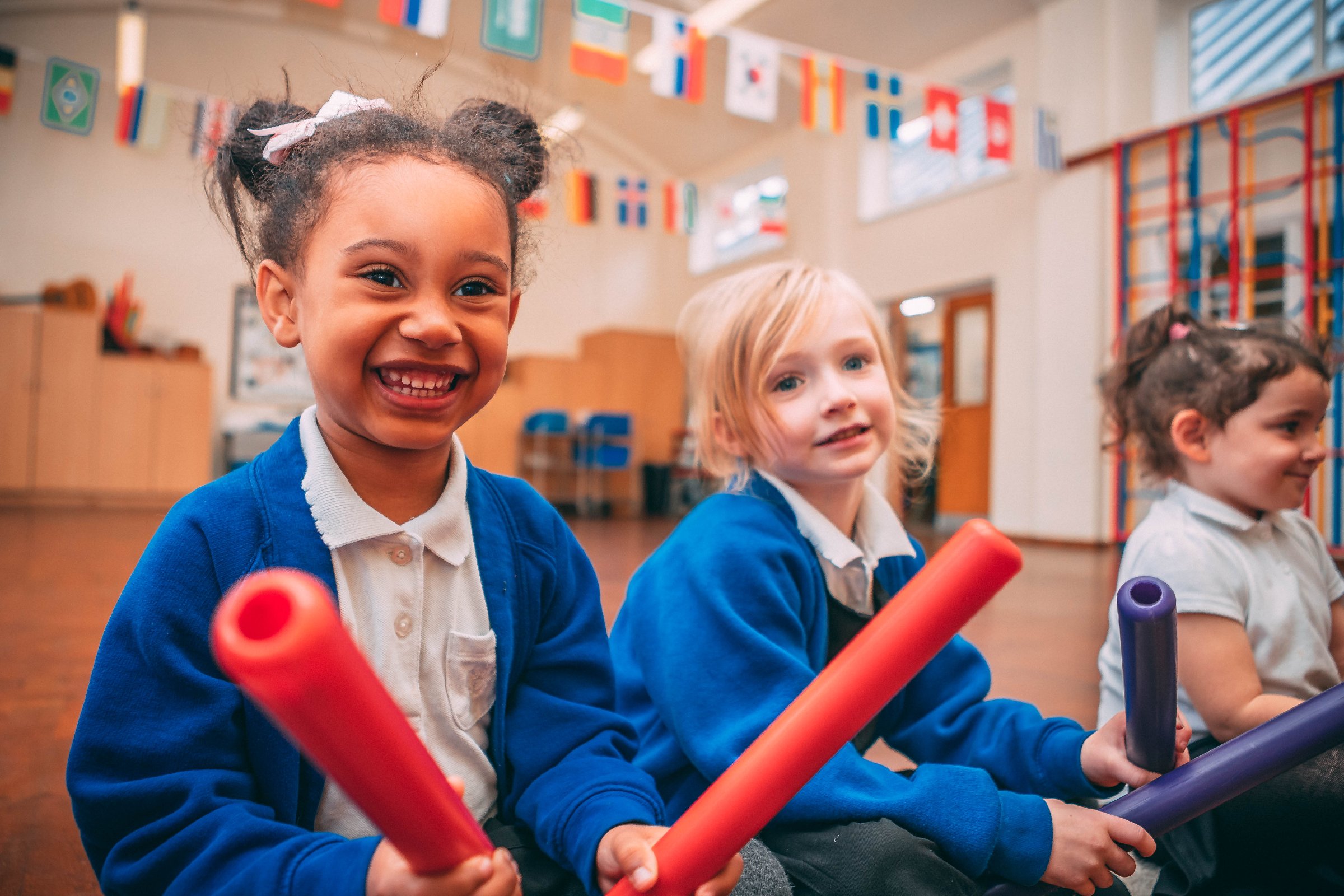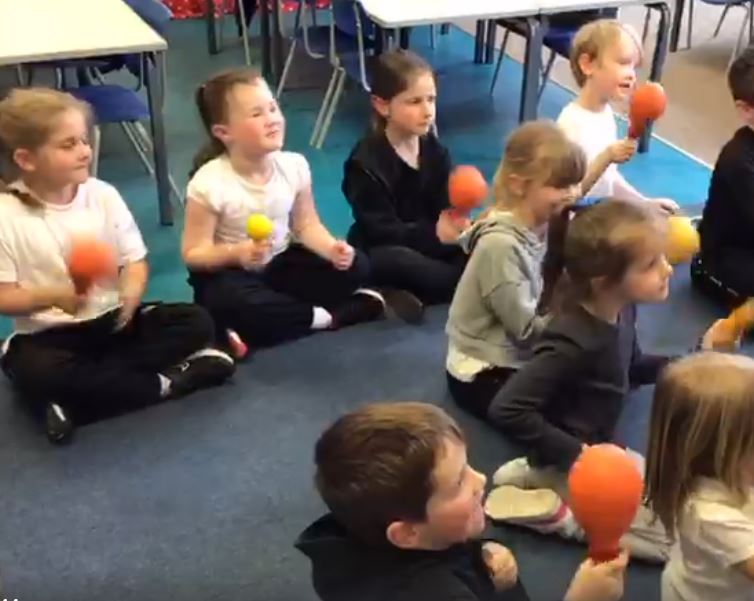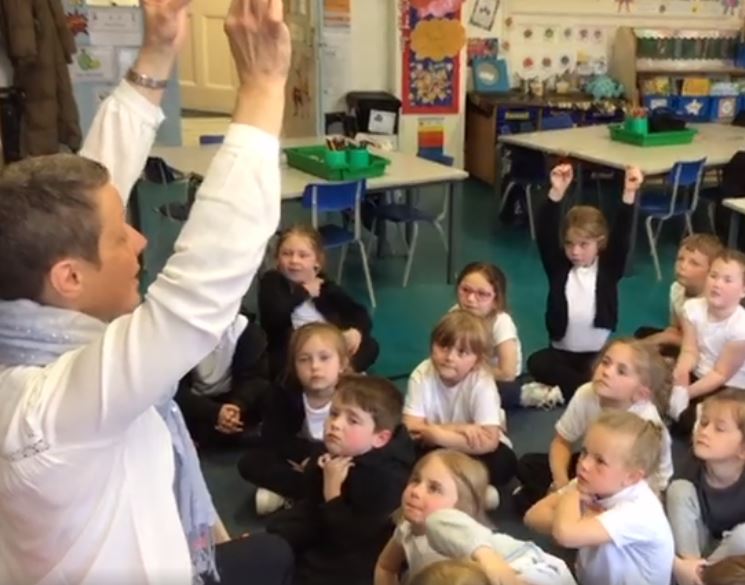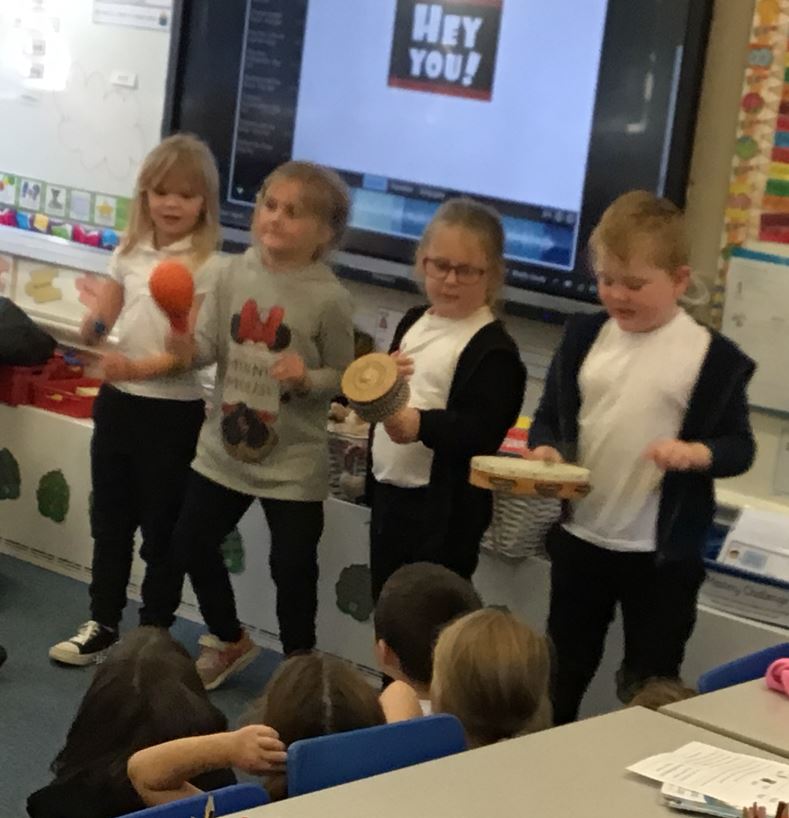Music
Subject Leader: Mrs Molson
At Airedale Infant School, we aim to deliver a high-quality music education, which engages children and inspires them to develop their love of music and talents as musicians, through explicit music lessons and through the development of skills through performance. We believe that music will enrich the lives of our children and this will in turn help to develop their self-confidence and sense of achievement.
The curriculum for Music at Airedale Infant School aims:
To provide opportunities across the curriculum for children to develop their listening skills
To teach about a variety of tuned and non-tuned musical instruments including their voice.
To develop an awareness of how to use these instruments effectively by changing rhythm, pitch or dynamics.
To enable pupils to respond to and evaluate live and recorded music, including their own and others’ compositions and performances;
To provide an opportunity for all children at all levels to perform alone and with others, using a range of instruments and their voice.
The Airedale Music Curriculum
Our curriculum is skills and knowledge based, including full coverage of the National Curriculum which meets the needs of all Airedale Infants and Junior pupils. This takes into consideration the school setting, local, national and international developments.
Our pupils are offered a very wide range of experiences within the curriculum to extend their understanding of themselves and the world in which they live. The children develop skills, attitudes, and values to enable them to become lifelong learners and equip them for the future. The ability to learn is underpinned by the teaching of basic skills, concepts, and values. There should be no limits to curiosity, and we instil a thirst for new experiences and knowledge.
We actively promote British Values and Social, Moral, Spiritual and Cultural differences. We also provide opportunities for our pupils to learn about the contribution of Britons to innovation, excellence and changes in the world.
Our school follows the Charanga scheme of Music and we use this as a basis for coverage. Charanga is designed to deliver the National Curriculum for music through a repetition-based approach, meaning skills are repeated through each unit of work. This helps the children develop in their knowledge and skills and learn about the same musical concept through different musical activities enabling children to master musical skills.
Our curriculum topics allow the teaching of threshold concepts that are the fundamental ‘learning elements’. These concepts are built upon and developed within the year, across the year and over the course of the school experience.
Adaptive teaching (aka agile teaching) recognises: individual needs; the need for varied and additional resources; when, where and how additional support can be facilitated; and how children learn best. Teachers must plan lessons so that all pupils can study every national curriculum subject and experience success against age-appropriate expectations and/or their own bespoke personal targets.

Music links closely to our school drivers. Our TRUST values of Ambition, Bravery and Respect underpin our school ethos. Being independent and fostering a love for learning is crucial in our school. Through music, our children are encouraged to build up good relationships with their peers, work independently and collaboratively, supporting one another. Children are taught the skills of resilience and perseverance, which prepare them for the challenges that they are given in school, as well as the wider world. Children’s successes both in and out of school are celebrated and they develop a sense of pride in their achievements. Our music curriculum celebrates the success of all pupils, regardless of their ability showing children that these are not barriers to success and aspiration.
Oracy and communication are fundamental skills that we believe equip our children to be life-long learners. Music supports this aim by children being able to respectfully discuss their performances and articulate their evaluation process with one another. Our pupils understand that their voice is a vital tool required for supporting and developing one another, which is crucial to aid success and promote the use of technical vocabulary. The vocabulary taught in Music links to many other areas of the curriculum, showcasing cross – curricular links. We encourage children to know, understand and apply this vocabulary in context.


Oracy and communication are fundamental skills that we believe equip our children to be life-long learners. Music supports this aim by children being able to respectfully discuss their performances and articulate their evaluation process with one another. Our pupils understand that their voice is a vital tool required for supporting and developing one another, which is crucial to aid success and promote the use of technical vocabulary. The vocabulary taught in Music links to many other areas of the curriculum, showcasing cross – curricular links. We encourage children to know, understand and apply this vocabulary in context.

How do we ensure progression of knowledge and skills?
Lessons are planned so that children develop an understanding of the differing components of music whilst they acquire and develop key skills. Children are taught to evaluate and improve their performance and are encouraged to use their independent and collaborative skills in order to be successful.
How is the subject taught?
When children are in Music lessons, they are explicitly told that they are going to be ‘Musicians’. They are then reminded of the key skills that they will learn, use and develop within this subject, specifically linking to their prior learning. The knowledge content is carefully selected and skilfully taught alongside the key skills and concepts, which are threaded throughout the curriculum. This allows children ample opportunities to revisit, reinforce and embed skills.
In accordance with the Key Stage 1 National Curriculum pupils should be taught to:
- use their voices expressively and creatively by singing songs and speaking chants and rhymes
- play tuned and untuned instruments musically
- listen with concentration and understanding to a range of high-quality live and recorded music
- experiment with, create, select and combine sounds using the inter-related dimensions of music.
How do we know that our children are making progress?
Ongoing assessments of the children’s knowledge and skills are observed by the class teacher. Misconceptions are addressed and next steps carefully planned. Children’s outcomes are compared to the subject specific skills and knowledge documents. At the end of a block of discrete teaching (or term) subject leaders gather an overview of children’s outcomes in Music. This is used to plan appropriate next steps for their future learning, as well as provide an overview of learning within a subject area across the whole school.
What wider opportunities are provided for our children?
In addition to discrete teaching in this subject, opportunities for Music through additional enrichment and links with other subject areas, ensure that elements of the Music curriculum are accessed by children throughout the year. Each half term a specialist music teacher comes into school to work with specific cohort of children. This is rotated across all year groups to ensure equal opportunities for all. Children are given the opportunity to participate in performances in front of a parent audience to showcase their skills and musical talents at points throughout the year.
Further Information & Links




